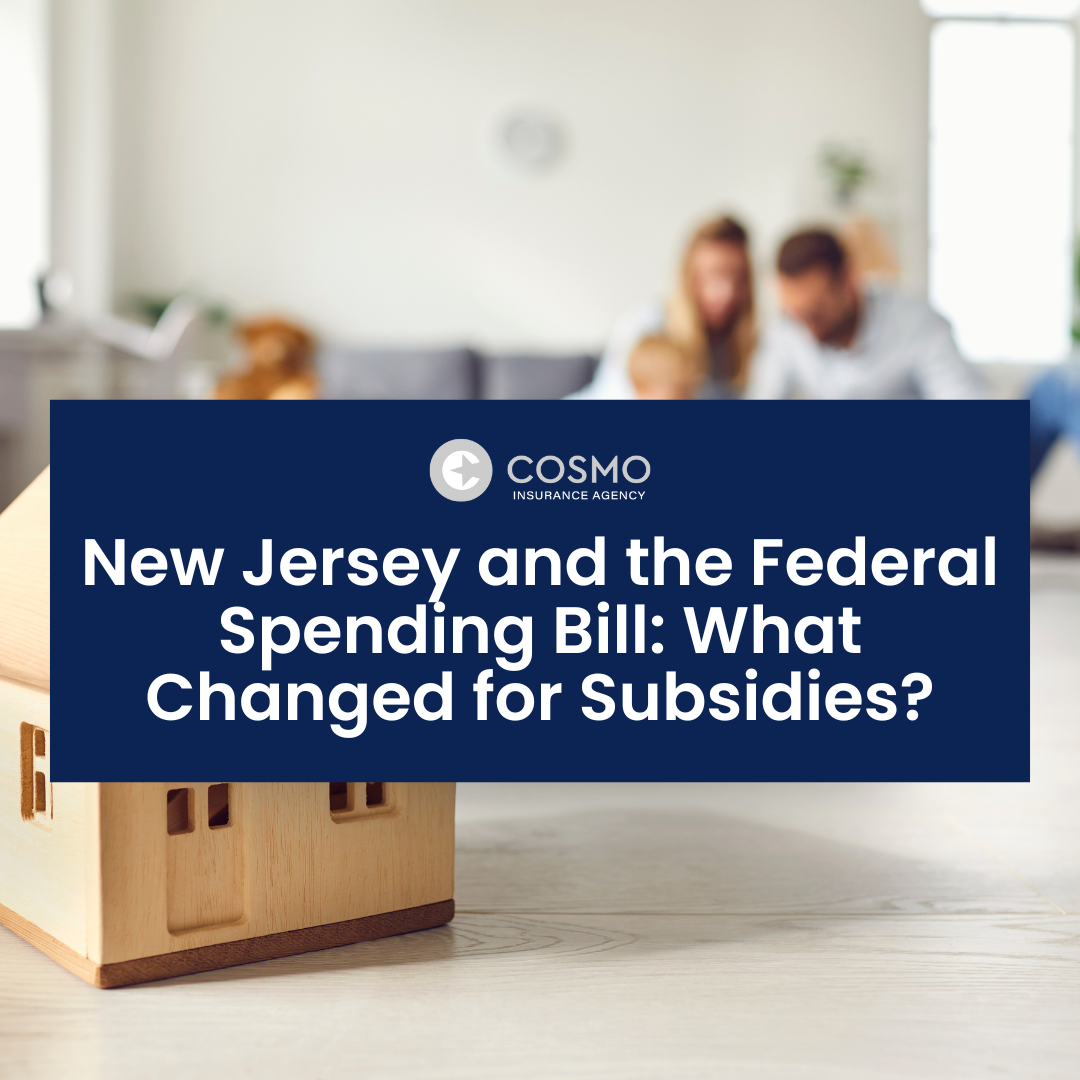In mid-November 2025, President Trump signed into law a stop-gap federal spending package that ended the record-breaking 43-day government shutdown. The bill reopened most federal agencies through January 30, 2026, but crucially left unresolved the extension of enhanced subsidies under the Affordable Care Act (ACA) marketplace.
Key Developments
- The bill provides funding for most federal agencies through late January.
- It guarantees retroactive pay for federal workers who were furloughed during the shutdown.
- It does not include a guarantee to extend the ACA premium tax credits — the subsidies that help many Americans afford marketplace insurance.
- In New Jersey, all nine House Democrats voted against the bill because of the omission of the subsidy extension; the state’s three House Republicans voted for it.
Implications for New Jersey Residents
1. Health Insurance Costs Could Rise
Because the enhanced ACA subsidies were excluded from the bill, millions of Americans—and many in New Jersey—now face the possibility of significantly higher marketplace premiums next year if Congress fails to act.
New Jersey residents currently relying on those tax credits should be aware: without extension, the affordability cushion disappears.
2. Social Assistance & Nutrition Programs
While the immediate bill included funding for programs like the Supplemental Nutrition Assistance Program (SNAP) and prevented disruption of federal services, earlier documents show that in the broader 2025 tax/spending law, SNAP and Medicaid (through NJ’s NJ-FamilyCare) faced potential cuts, increased state cost-sharing, and tighter eligibility.
Although those changes have not all taken effect yet, New Jersey families involved with nutrition assistance or public health programs should stay alert for policy shifts.
3. Political & Advocacy Flashpoint
The omission of the subsidy extension has become a major issue for New Jersey’s Democratic delegation. They argue that the deal funds the government but leaves families exposed. Example: Rep. Nellie Pou said the deal “will make health care more expensive at a time when so many Americans are stretched thin.”
This means that voter attention in New Jersey may zero in on health-care affordability in upcoming state or congressional campaigns.
What to Watch Going Forward
- Congressional action on ACA subsidies: While the bill ended the shutdown, the underlying fight remains. The Senate has committed to a vote on extending the ACA tax credits, but no firm commitment exists in the House yet.
- State-level impact in New Jersey: With potential changes in federal subsidies and cost-sharing, state programs like NJ-FamilyCare and school-meal programs (which link to SNAP eligibility) may see ripple effects.
- Budget deadlines: Because the funding slate is temporary (through January 30), another showdown looms early next year unless a longer-term deal is reached.
- Public outreach: Residents who use marketplace insurance or rely on federal nutrition/housing/health programs should look for communication from state agencies about shifting eligibility or costs.
What New Jersey Families Should Do Now
- Check your marketplace insurance: If you’re using a subsidy under the ACA, monitor communications from healthcare.gov or New Jersey’s exchange. Start budgeting for possible premium increases.
- Stay informed about state benefits: If you participate in SNAP, school-meal programs, or Medicaid/NJ-FamilyCare, watch for updates about eligibility and benefit changes.
- Engage locally: Contact your U.S. Representative or state legislators to ask how they plan to protect health-care affordability and social-safety-net programs in New Jersey.
- Plan for January deadline: Because the current funding runs only through January, plan for potential uncertainty in early 2026—including the possibility of another funding impasse.
Conclusion
The recent federal spending package signed by President Trump provided relief by ending the government shutdown and securing agency funding in the short term—but left open major subsidy questions that matter deeply in New Jersey. With affordability of health insurance, and the stability of social-support programs hanging in the balance, families and policymakers in New Jersey face a key period of decision-making.
Staying alert, asking questions, and understanding the link between federal decisions and local impact will be vital in the months ahead.
References
- “What NJ House members said about the bill to end the government shutdown” — New Jersey Monitor, November 13, 2025. New Jersey Monitor
- “What’s in the federal spending bill to reopen the government?” — 6abc, November 14, 2025. 6abc Philadelphia
- “Government Shutdown Concluded but ACA Subsidies in Limbo” — The American Journal of Managed Care, November 13, 2025. AJMC
- “Legislative Review – Week Ending July 11 2025” (NJ Office of the Food Security Advocate). NJ.gov
For more follow us on Instagram, Facebook, Twitter, & LinkedIn.


